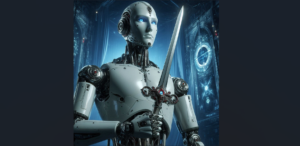There has been a lot of discussion about full-stack engineers in recent years. The rate of technical innovation is unstoppable, and the technologies used by corporations to produce software products today are vastly different from those utilized just ten years ago. Since full-stack developers have such a diverse set of skills, they are rapid learners who can keep up with technological changes and use whichever technology is in demand at the time.
Full-stack developers are acquainted with every layer of the technology stack, allowing them to design an entire functional prototype of an application without the assistance of anyone else. This makes them particularly useful for businesses that need to produce a Minimum Viable Product (MVP) quickly and then polish it afterwards. Full-stack engineers can go from one component of a product to another, helping entrepreneurs reduce their overhead to a minimum.
Read more: Indian jobseekers prefer SMBs despite low salaries & benefits
As full-stack developers can operate on each level of an application, they devote more time collectively, which promotes business chemistry. A well-connected team of competent full-stack developers can be far more productive and agile than a much bigger team of experts working in discrete, segregated groups.
Full-stack developers are in high demand at companies such as (MAANG) Meta, Amazon, Apple, Netflix, and Google. IBM, Cognizant, Infosys, and other well-known organizations frequently recruit these developers.
For aspiring jobseekers, we’ve compiled a list of the top five full-stack developer courses.
Full-stack Developer
Full-stack developers are the ones who work on both the frontend and backend aspects of any given application. They have to be able to understand both technologies and use them to build apps that solve real-world problems. These days, companies are looking for developers who can take their skills and make them better through constant learning and practice. This means that you will need to learn multiple languages, such as Python, Java, JavaScript, C++, etc., as well as frameworks like ReactJS, NodeJS, etc., along with other tools such as NPM (Node Package Manager), Yarn (NPM package manager), etc., to become an effective full stack developer.
DevOps & Cloud Computing
Cloud computing allows users to establish self-service infrastructure provisioning solutions using the AWS Service Catalog. Developers may test new things quickly, fail quickly, and easily succeed in bringing innovative products to market faster without having to wait for IT operations to deliver services for them. On the other hand, DevOps is a combination of these methodologies, in which developers and operators collaborate using the cloud as a single shared language. As a result, both DevOps and the cloud can collaborate because everyone is learning new definitions and methodologies at the same time.
Web 3.0 Developer
The growing popularity of blockchain technology is driving up demand for developers in the area. Along with good compensation, it’s a fascinating job to work in. If you want to engage in this and advance your career as a Web 3.0 developer, an organized method can considerably increase the learning potential of your expertise. There is a definite boundary between where your skill set can be and where you can succeed as a developer. On the back end, you select a blockchain, deal with a single language, and once you understand the shift in architecture, you can begin to consider more thoroughly efficiency and storage optimization—all of the things that facilitate you being an excellent smart contract developer.
Data Science and AI
With so much data available, governments, corporations, and brands alike are perplexed as to how to make sense of it. Data science is the solution to this problem. It is the science of extracting information from data. In conjunction with domain expertise, it aids strategic decision-making, resulting in a better user experience, lower expenses, and more profitability. The most common example in our daily life is food delivery systems such as Zomato, Swiggy, Uber Eats, and others.
Among the fastest expanding categories of the Indian e-commerce market is food delivery. These portals use user data and AI/ML in three ways: to provide an amazing personalized customer experience to their users; to assist their partner restaurants in planning for future demand by developing time series-based forecast models, and to optimize their delivery partners’ routes to enable effective and rapid delivery to the end customer.
Product Engineer
Product engineers are mechanical engineers who specialize in the design and development of commodities as well as the associated manufacturing processes. It is the role of a product engineer to collaborate with the product development team to turn conceptions into commercial products based on market rules and industry analyses. Furthermore, one is to create rough product ideas using computer software and sketches based on budgetary market surveys and client desires. Also, production must be supervised to ensure that the items meet safety laws and market specifications.

Abhishek Gupta
Guest contributor Abhishek Gupta is the Co-founder and Chief Business Officer of Learnbay Institute, a Bengaluru-based EdTech firm, which caters to working professionals and helps them grow in their careers via their job-ready data science, AI, and machine learning courses. A passionate tech trainer, Gupta started Learnbay as a joint venture with Nisha Kumari in 2015. His focus has always been to guide working professionals to transform their careers by providing high-quality and job-oriented training on the latest technologies. Any opinions expressed in this article are strictly that of the author.











